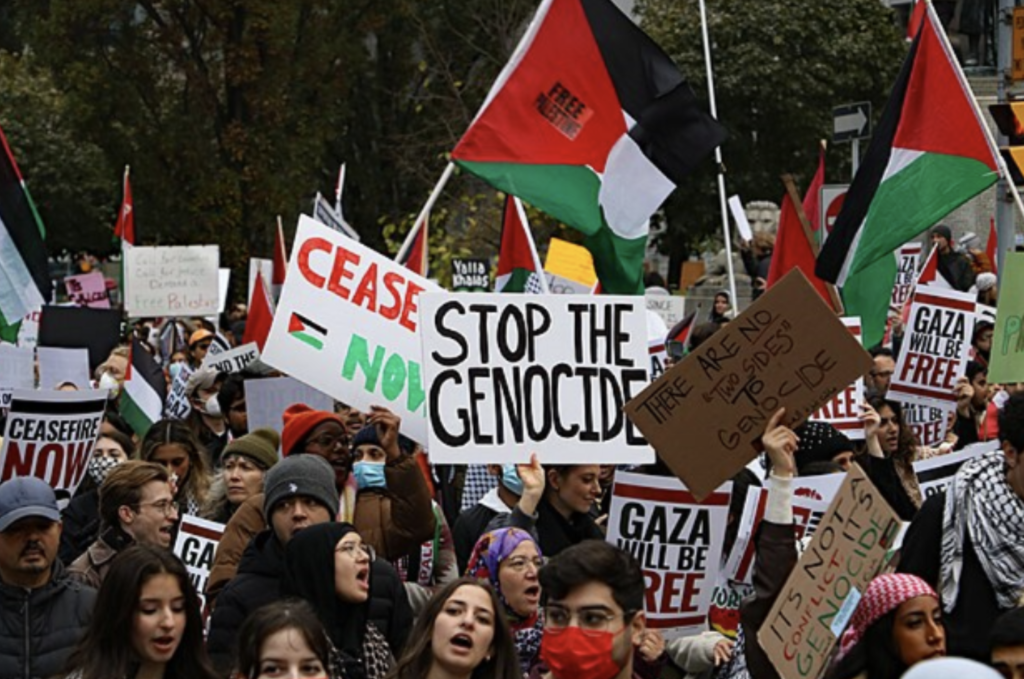The Political Rise of Arab Americans

By: Raisa Sami / Arab America Contributing Writer
Arab Americans, a diverse community with roots spanning 22 countries across the Middle East and North Africa, have significantly shaped the sociopolitical landscape of the United States. From early waves of immigration in the late 19th century to the present day, Arab Americans have consistently sought to influence public policy, secure civil rights, and contribute to the broader narrative of American democracy. The advancement of Arab Americans’ political interests and representation has been made possible by national organizations like the Arab American Institute (AAI), the National Association of Arab Americans (NAAA), the American-Arab Anti-Discrimination Committee (ADC), the Association of Arab American University Graduates (AAUG), and the Arab America Foundation (AAF).
Early Advocacy and Organizational Foundations
The Association of Arab American University Graduates (AAUG), established in 1967, was among the first significant groups to offer a forum for political and intellectual interaction among Arab Americans. Its main objectives were to advance research, deepen public awareness of Middle Eastern affairs, and educate Americans about Arab cultures and politics. To combat negative stereotypes and promote a more accurate and nuanced representation of Arab Americans and the Arab world, the AAUG played a crucial role.
The National Association of Arab Americans (NAAA), founded in 1972, contributed to the cause by concentrating on lobbying and political advocacy. The NAAA aimed to promote a fair assessment of Arab Israeli relations and have an impact on US foreign policy, particularly regarding Middle Eastern matters. The organization played a crucial role in amplifying Arab American voices in the political arena, advocating for policies that reflected the community’s interests and concerns.
The American-Arab Anti-Discrimination Committee (ADC), founded in 1980 by former U.S. Senator James Abourezk, emerged as a response to the increasing discrimination and civil rights violations faced by Arab Americans, especially in the wake of the Arab-Israeli conflict and the Iran hostage crisis. ADC has been a pillar in the struggle against discrimination, devoted to defending Arab Americans’ civil rights and elevating their cultural legacy. ADC has addressed issues like hate crimes, racial profiling, and media bias through grassroots mobilization, public education campaigns, and legal advocacy. The organization’s initiatives have been crucial in exposing discriminatory behaviors and promoting an Arab American community that is more welcoming and equal.
The Arab American Institute (AAI) has led the way in promoting Arab Americans’ civic involvement and political advocacy since its establishment in 1985. The goal of the AAI is to strengthen Arab Americans’ political clout using advocacy, public policy research, and voter mobilization. Arab Americans have been greatly aided by the organization’s encouragement to take part in civic affairs, run for public office, and vote. Arab Americans are now significantly more represented in politics at the local, state, and federal levels thanks to the AAI’s efforts. Prominent Arab American lawmakers have broken down barriers and gained prominence in American politics by supporting diverse communities and fair policies. Examples of these politicians are U.S. Congresswoman Rashida Tlaib and former U.S. Congressman Justin Amash.
The Arab America Foundation (AAF) was founded to promote Arab heritage, educate Americans with an accurate portrayal of Arabs and Arab Americans, and connect Arab Americans under a unified identity. The Foundation hosts the annual Connect Arab America: Empowerment Summit, featuring cultural performances and notable speakers. Additionally, it successfully advocated for the recognition of April as National Arab American Heritage Month, receiving acknowledgments from the President, Congress, and state and local officials.
Accomplishments and Ongoing Challenges
Arab Americans have made significant progress in advocacy, representation, and policy influence, becoming a vital part of American politics and enriching the country’s democratic systems. However, challenges such as xenophobia, racial profiling, and underrepresentation persist in various political and social arenas. Addressing these issues and promoting a more equitable and inclusive society remains crucial. Organizations like the ADC, AAI, and AAF continue to play an essential role in this ongoing effort.
Arab Americans’ political ascent is evidence of their tenacity, resolve, and dedication to activism and public participation. Arab Americans have achieved great progress in protecting their rights, influencing public policy, and reshaping the perception of what it means to be an American, thanks to the unwavering efforts of important organizations and leaders. Growing and changing over time, the community’s contributions to the social, political, and cultural fabric of the United States will undoubtedly remain significant and enduring.
Check out our Blog here!








